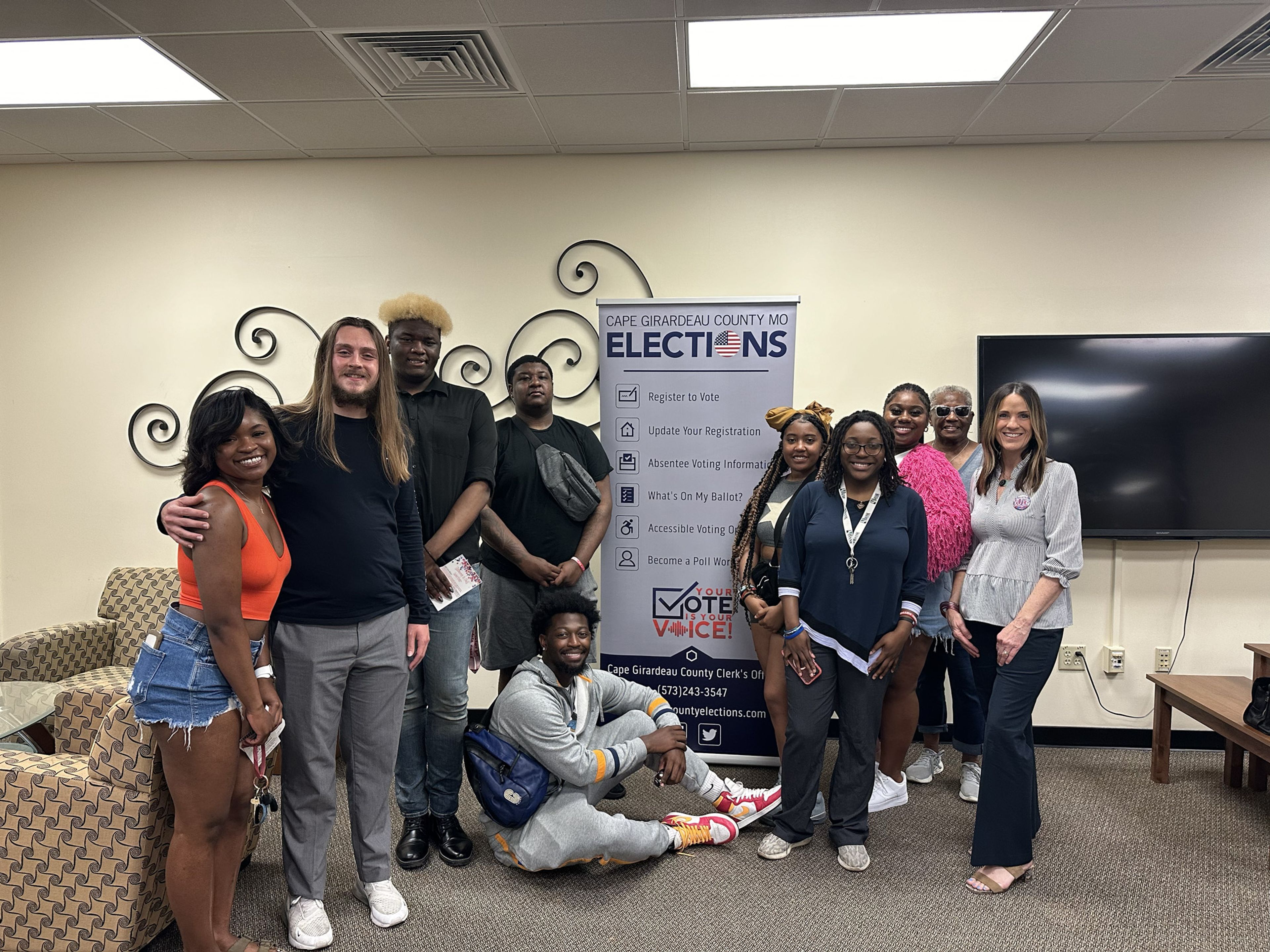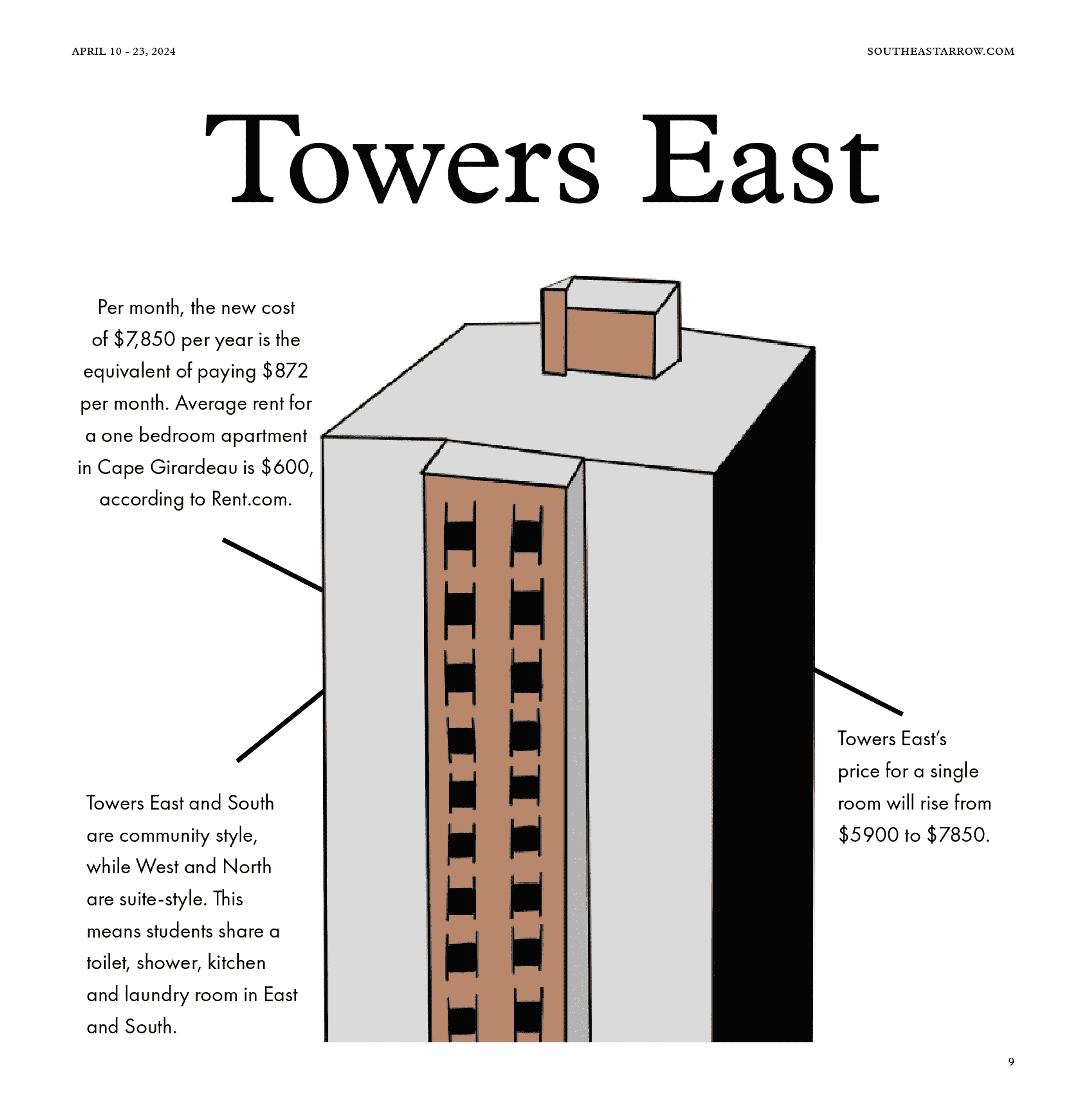Kurt Trendle, a graduate student at Southeast Missouri State University, decided to begin offering American Sign Language tutoring to interested students at the beginning of the fall semester. Although he grew up with deaf parents, he claimed he doesn't consider his family different from any other.
"Both of my parents are deaf," Trendle said. "I have four other siblings -- two brothers, two sisters -- and we all can hear. I have a twin brother. He's fraternal, he doesn't look anything like me. I've known sign language pretty much ever since I can remember. It's like growing up in an English-speaking household, you just kind of pick up on it. Having deaf parents, obviously it's different, but also the same as having hearing parents. It's just I had to do a lot of things for them. Say going to a restaurant, I had to order for them, or when someone rings the doorbell, I had to be the one that answers it."
Trendle said it wasn't a problem learning English growing up because he was taught by his siblings and private schooling.
"I went to a private school and that is where I learned English," Trendle said. "With my older sister, she was the first born, you know that was definitely a concern that my parents had, and so what they would do is just leave the TV on all the time so that she would learn English that way. She was an only child for the first two to two-and-a-half years of her life. I feel like that's pretty important when you're developing your language skills, so they would just leave the TV on in order for her to learn English."
He explained he had to act as an interpreter for his parents since a very young age, but for the most part, he said his parents have functional lives all on their own, even without their children living at home to assist them.
"I visit my parents every now and then, but the thing is, they don't need help," Trendle said. "If, say, my mom and dad go out on a date to a restaurant they can still order from the menu, they just point to what they want. Being deaf is not a hindrance for them at all. The thing is, there is a deaf community and they are very proud of who they are. They don't view being deaf as being an impairment. To my parents, they don't consider being deaf a disability at all. They don't say they are hearing impaired, they just say that they're deaf, because that's what they are. But they don't ever describe themselves as hearing impaired."
Trendle decided to begin tutoring sign language to gain more experience while pursuing his certification, as well as provide an avenue for himself and others to get in touch with the deaf community on campus.
"I wanted to provide an avenue for people who do want to learn sign language," Trendle said. "There's also a sign language class here at SEMO available that some students take. I thought maybe if some people are struggling in that class that I could help them with that. There are people that go to school for years to get certified when it comes naturally to me, so I figured this is a good backup plan for me to have, to get certified. It's also something to do as a part-time job."
Some universities don't offer sign language as a part of the foreign language curriculum. He also said sometimes people have the misconception that sign language isn't a foreign language at all.
"American Sign Language is a foreign language," Trendle said. "There are a lot of universities around the country that offer American Sign Language as part of the foreign language curriculum, but there are also many universities around the country that don't, such as SEMO. There are two different types of sign language. There is American Sign Language and there is Exact English Sign. It's always good to know another language, and it looks good on a resume. I've had interviews where they don't even talk about my credentials, they just see that I know sign language and that's all they'll talk about for the whole interview."
Although Trendle is not deaf, he claimed that the services offered by the university are well suited for the deaf community to have a comfortable visit or learning experience at Southeast.
"I know if you're a deaf student here the school has to provide an interpreter, you just have to request it," Trendle said. "My parents came here and they provided an interpreter for them when I was here for First Step and orientation. They even provided an interpreter last year for my graduation. I do think that the university does accommodate students who are hearing impaired and also students who have hearing impaired relatives, such as their parents. They do a good job. I think if you're a deaf student and you came to SEMO it wouldn't be a problem."




